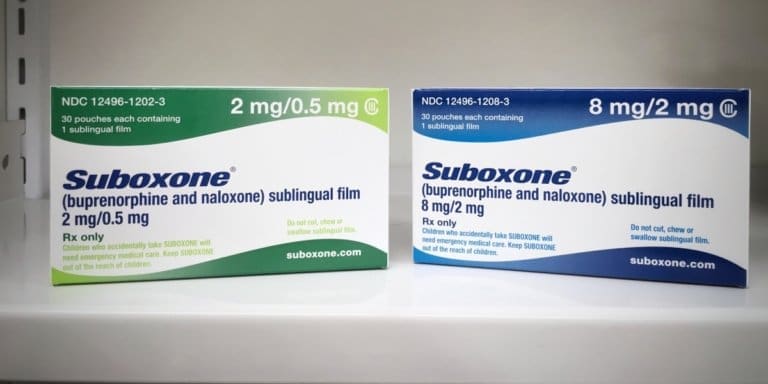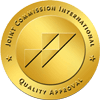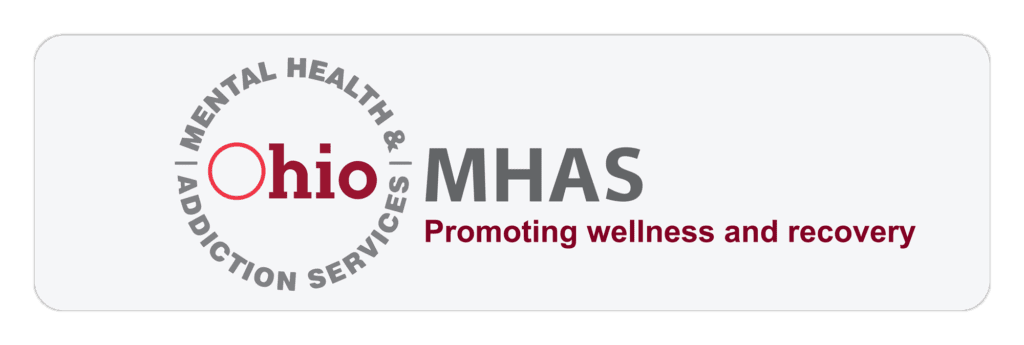Suboxone: What Is Suboxone? Uses, Treatment & Side Effects
- February 28, 2023
- Prosperity Haven
- Addiction Treatment

If you or someone you love is addicted to opioids, then you might have heard of Suboxone as a potential solution. And while Suboxone is used to help thousands of people safely overcome their opioid addiction, it also has some risks that you should know about. By staying informed on the drug, you can learn what Suboxone does, how it works, and if it’s the right fit for you.
So, what is Suboxone? How does it work? What is Suboxone used for? Can people get high on Suboxone? Is Suboxone addictive? Finally, where can you find a high-quality recovery clinic for Suboxone treatment?
In today’s guide, we will answer all of these questions and more. Additionally, we will help you find the resources you or someone you love may need to overcome an addiction to opioids.
What Is Suboxone?
Suboxone is a prescription medication used to treat opioid addiction. It is typically prescribed as a part of a comprehensive treatment plan that includes counseling and behavioral therapy. Suboxone is usually taken as pills or strips that dissolve under the tongue. The dosage of Suboxone is gradually tapered down over time as the patient progresses in their treatment.
It’s important to note that Suboxone can be addictive if not used as directed by a healthcare professional. It should only be used under the supervision of a healthcare provider who has experience in treating opioid addiction. If you’re looking for a substance abuse clinic to properly administer Suboxone pills or strips, feel free to reach out to Prosperity Haven for help.
How Does Suboxone Work?
Suboxone contains two active ingredients: buprenorphine and naloxone. Buprenorphine is a partial opioid agonist, which means it can relieve withdrawal symptoms and reduce cravings for opioids without producing the same high or dangerous side effects as full opioid agonists. Naloxone is an opioid antagonist, which means it can block the effects of opioids if they are taken while Suboxone is present in the body.
Suboxone VS Methadone
Suboxone and methadone are both prescription medications used to treat opioid addiction, but they work in different ways and have some important differences. Suboxone contains buprenorphine and naloxone, while methadone is a full opioid agonist. This means that methadone binds to the same receptors in the brain as opioids like heroin and fentanyl, but it produces a less intense high and can help reduce cravings and withdrawal symptoms. Suboxone, on the other hand, is a partial opioid agonist, which means it produces less of a high and has a ceiling effect, which makes it less likely to cause respiratory depression and other dangerous side effects.
Both medications can be effective for treating opioid addiction when used as directed by a healthcare provider. The choice between Suboxone and methadone will depend on individual factors such as the severity of your addiction, your medical history, and your preferences and lifestyle.
Sublocade VS Suboxone
Sublocade is another medication that treats opioid addiction and, like Suboxone, contains buprenorphine. However, Sublocade is delivered via a monthly injection instead of daily Suboxone strips or pills. This can be an advantage for some people because it eliminates the need to remember to take daily medication and can help reduce the risk of misuse. However, it requires regular visits to a healthcare provider for the injections, which can be far less convenient.
Zubsolv VS Suboxone
Zubsolv and Suboxone are both prescription medications used to treat opioid addiction, and they contain the same active ingredients: buprenorphine and naloxone. However, there are a few important differences between the two. Zubsolv is a newer medication and contains a higher concentration of buprenorphine than Suboxone, which may make it more effective at reducing cravings and withdrawal symptoms. Suboxone, on the other hand, has been available for longer and comes in both tablet and strip formulations. It is also available in different strengths, which may be helpful for people who require a higher or lower dose.
Belbuca VS Suboxone
Belbuca also contains buprenorphine, but it is formulated as a buccal strip that is placed against the inside of the cheek. This can be an advantage for some people because it eliminates the need to taste the medication or swallow a pill. However, it is typically used for the management of chronic pain and is not FDA-approved for the treatment of opioid addiction. Alternatively, Suboxone is approved for the treatment of opioid addiction.
Subutex VS Suboxone
Subutex contains only buprenorphine, while Suboxone contains both buprenorphine and naloxone. Subutex is typically used during the induction phase of treatment, when a person is first starting out. Alternatively, Suboxone is used for maintenance treatment, when a person is stabilized on buprenorphine and requires ongoing medication to manage their addiction.
Suboxone Side Effects
Like all medications, Suboxone has certain side effects. Some of the most common side effects of Suboxone include:
- Headache
- Nausea
- Vomiting
- Constipation
- Sweating
- Insomnia
- Fatigue
- Back pain
- Mouth numbness or redness
In some cases, Suboxone can cause more serious side effects, such as:
- Allergic reactions
- Changes in mood
- Respiratory problems
- Liver problems
- Adrenal gland problems
If you experience any serious side effects, you should seek medical attention immediately. It’s important to talk to expert Suboxone doctors to discuss concerns you have about the drug and its potential side effects. Your healthcare provider can help you weigh the benefits and risks of the medication and determine whether it is the right choice for you.
Suboxone Addiction
Suboxone does have the potential to be addictive. However, when used as directed and as part of a comprehensive treatment plan that includes counseling and behavioral therapy, the risk of addiction is low. Nonetheless, some people may abuse Suboxone by taking it in larger amounts than prescribed, taking it more frequently than prescribed, or using it in ways other than directed. This can lead to addiction and, if access to the drug is cut off, even Suboxone withdrawal.
Is Suboxone A Controlled Substance?
Yes, Suboxone is a Schedule III controlled substance in the United States. This means that it is recognized as having medical value, but it also comes with certain risks (namely addiction). Consequently, you will require a prescription from a certified Suboxone clinic or healthcare professional to use the medication.
How Long Does Suboxone Stay In Your System?
The length of time that Suboxone stays in your system can vary based on a few different factors, including the amount that was taken. That said, buprenorphine typically stays in the body for about 7 days, while naloxone only stays in the body for 2 to 3 days. This means that, on average, you can expect traces of Suboxone to stay in your system for anywhere between 5 and 10 days.
How To Get Help For An Opioid Addiction
If you or someone you know is struggling with opioid addiction, it’s important to seek help as soon as possible. After all, it is much easier to overcome addiction when you have a support system. Try to reach out to friends, families, and others who can motivate you to stay accountable and continue your path toward recovery.
When you’re ready, you should consider a comprehensive treatment program with a dependable provider like Prosperity Haven that can provide inpatient or outpatient rehab, individual or group counseling, and other support services. Remember, recovery is a journey, and there may be setbacks along the way. But with the right support and treatment, it is possible to overcome Suboxone addiction and build a new life.
Is someone you know showing signs of Suboxone or opioid addiction? Do you believe that treatment for opioid addiction is the best solution to reach recovery? If so, feel free to contact the experts at Prosperity Haven to learn more.
YOUR NEW BEGINNING
STARTS HERE
Take the First Step and Reach Out Today






